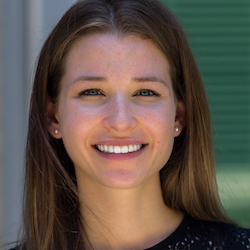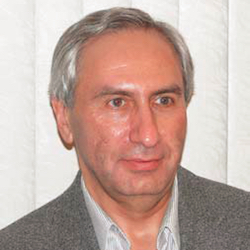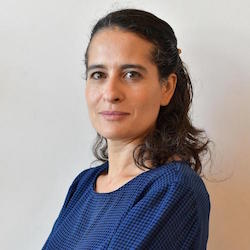Overview
MEDx Investigators are Duke faculty members who have joint primary appointments in the Schools of Medicine and Engineering. They fill strategic gaps at the interface of medicine and engineering and make significant contributions to the challenges in clinical medicine, clinical research, and basic and data sciences. MEDx Investigators mentor undergraduate and graduate students, post docs and fellows from both schools to help create the next generation of interdisciplinary researchers and clinicians.
Jessilyn Dunn, Ph.D.
 Jessilyn Dunn is an assistant professor in the Departments of Biomedical Engineering and Biostatistics and Bioinformatics. Her primary areas of research are focused on biomedical data science and mobile health. Her work includes multi-omics, wearable sensors, electronic health records integration and digital biomarker discovery. She completed her Ph.D. at Georgia Tech and Emory University and her B.S. at Johns Hopkins University, both in biomedical engineering. Dr. Dunn has worked as a visiting scholar at the U.S. Centers for Disease Control and Prevention and at the National Cardiovascular Research Institute in Madrid, Spain. Her work has been internationally recognized with coverage by media sources including the NIH Director's Blog, the American Heart Association Science News, Wired, Time, and U.S. News and World Report.
Jessilyn Dunn is an assistant professor in the Departments of Biomedical Engineering and Biostatistics and Bioinformatics. Her primary areas of research are focused on biomedical data science and mobile health. Her work includes multi-omics, wearable sensors, electronic health records integration and digital biomarker discovery. She completed her Ph.D. at Georgia Tech and Emory University and her B.S. at Johns Hopkins University, both in biomedical engineering. Dr. Dunn has worked as a visiting scholar at the U.S. Centers for Disease Control and Prevention and at the National Cardiovascular Research Institute in Madrid, Spain. Her work has been internationally recognized with coverage by media sources including the NIH Director's Blog, the American Heart Association Science News, Wired, Time, and U.S. News and World Report.
BIG IDEAS Lab
Samira Musah, Ph.D.
 Samira Musah is an assistant professor in the Department of Biomedical Engineering and the Division of Nephrology. As a stem cell biologist and a medical bioengineer, she is interested in understanding the molecular and cellular basis of organ development and how these processes can be therapeutically harnessed to treat human disease. Her research includes the establishment of a novel method to generate blood-filtering cells (glomerular podocytes) from human-induced pluripotent stem cells and integrate these cells into a vascularized microfluidic organ-on-a-chip system to recapitulate the structure, function and specific drug toxicity of the human kidney's blood filtration unit. Core areas in Dr. Musah's research group include guided differentiation of human-induced pluripotent stem cells; the molecular and cellular basis of human kidney development and disease; engineered in vitro models of the human kidney; and disease modeling, biomarker discovery and therapeutic development.
Samira Musah is an assistant professor in the Department of Biomedical Engineering and the Division of Nephrology. As a stem cell biologist and a medical bioengineer, she is interested in understanding the molecular and cellular basis of organ development and how these processes can be therapeutically harnessed to treat human disease. Her research includes the establishment of a novel method to generate blood-filtering cells (glomerular podocytes) from human-induced pluripotent stem cells and integrate these cells into a vascularized microfluidic organ-on-a-chip system to recapitulate the structure, function and specific drug toxicity of the human kidney's blood filtration unit. Core areas in Dr. Musah's research group include guided differentiation of human-induced pluripotent stem cells; the molecular and cellular basis of human kidney development and disease; engineered in vitro models of the human kidney; and disease modeling, biomarker discovery and therapeutic development.
Michael Rubinstein, Ph.D.
 Michael Rubinstein's research group focuses on developing simple physical models of soft matter and biological systems ranging from polymer elastomers and gels to extracellular matrix and mucus in human lungs. They perform computer simulations and experiments to test their theoretical models then modify their theoretical models or develop new theories to explain the results of experiments and simulations. They collaborate extensively with experimental, computational and theoretical groups at Duke, within Research Triangle Park, and at other universities and research laboratories in the U.S. and worldwide.
Michael Rubinstein's research group focuses on developing simple physical models of soft matter and biological systems ranging from polymer elastomers and gels to extracellular matrix and mucus in human lungs. They perform computer simulations and experiments to test their theoretical models then modify their theoretical models or develop new theories to explain the results of experiments and simulations. They collaborate extensively with experimental, computational and theoretical groups at Duke, within Research Triangle Park, and at other universities and research laboratories in the U.S. and worldwide.
Tatiana Segura, Ph.D.
 Tatiana Segura's research includes engineering hydrogel biomaterials to support the formation of a reparative niche within damaged or diseased sites of the body. Their gels aid in cell migration and proliferation, as well as serve as a platform for delivery of regenerative factors. They see remarkable outcomes when their biomaterials are applied to ischemic tissues, such as the brain after stroke and chronic ulcers in the skin, in part due to their gel's ability to form a "space-filling vascular plexus" that not only helps speed up healing, but also lays the groundwork for recruitment of endogenous stem or progenitor cells. This fosters regeneration of tissue rather than scarring.
Tatiana Segura's research includes engineering hydrogel biomaterials to support the formation of a reparative niche within damaged or diseased sites of the body. Their gels aid in cell migration and proliferation, as well as serve as a platform for delivery of regenerative factors. They see remarkable outcomes when their biomaterials are applied to ischemic tissues, such as the brain after stroke and chronic ulcers in the skin, in part due to their gel's ability to form a "space-filling vascular plexus" that not only helps speed up healing, but also lays the groundwork for recruitment of endogenous stem or progenitor cells. This fosters regeneration of tissue rather than scarring.
Mike Tadross, M.D., Ph.D.
 Mike Tadross holds a dual appointment in the Departments of Biomedical Engineering and Neurobiology. His lab develops technologies to advance neuroscience research specifically geared toward clinical applications. These tools provide an enormous methodological leap for the field by rapidly delivering drugs to genetically defined subsets of cells in the brain. The Tadross lab leverages these tools in mouse models of neuropsychiatric disease to determine how specific receptors on defined cells and synapses give rise to diverse neural phenomena with an unprecedented level of precision. By combining these methods with drugs currently in use to treat human neuropsychiatric disease, this research has robust implications for disorders as diverse as Parkinson's disease, addition and depression.
Mike Tadross holds a dual appointment in the Departments of Biomedical Engineering and Neurobiology. His lab develops technologies to advance neuroscience research specifically geared toward clinical applications. These tools provide an enormous methodological leap for the field by rapidly delivering drugs to genetically defined subsets of cells in the brain. The Tadross lab leverages these tools in mouse models of neuropsychiatric disease to determine how specific receptors on defined cells and synapses give rise to diverse neural phenomena with an unprecedented level of precision. By combining these methods with drugs currently in use to treat human neuropsychiatric disease, this research has robust implications for disorders as diverse as Parkinson's disease, addition and depression.
Shyni Varghese, Ph.D.
 Shyni Varghese is a professor with appointments in the Departments of Biomedical Engineering, Mechanical Engineering and Materials Science, and Orthopaedic Surgery. She leads an interdisciplinary research program at the interface of engineering, physical sciences and medicine. Her research covers a broad range of topics, including stem cells, bioinspired materials and regenerative medicine with a focus on both basic and translational research. Examples of ongoing research activities in her laboratory include the development of smart biomaterials, including self-healing and stimuli responsive hydrogels; extracellular matrix biology and engineered matrices; stem cell engineering, cell transplantation and endogenous tissue regeneration; and organ-on-a-chip technologies. She is currently serving as an associate editor of Biomaterials Science, a Royal Society of Chemistry journal.
Shyni Varghese is a professor with appointments in the Departments of Biomedical Engineering, Mechanical Engineering and Materials Science, and Orthopaedic Surgery. She leads an interdisciplinary research program at the interface of engineering, physical sciences and medicine. Her research covers a broad range of topics, including stem cells, bioinspired materials and regenerative medicine with a focus on both basic and translational research. Examples of ongoing research activities in her laboratory include the development of smart biomaterials, including self-healing and stimuli responsive hydrogels; extracellular matrix biology and engineered matrices; stem cell engineering, cell transplantation and endogenous tissue regeneration; and organ-on-a-chip technologies. She is currently serving as an associate editor of Biomaterials Science, a Royal Society of Chemistry journal.

